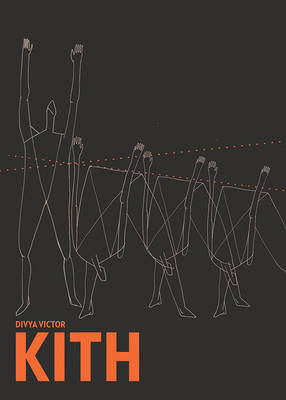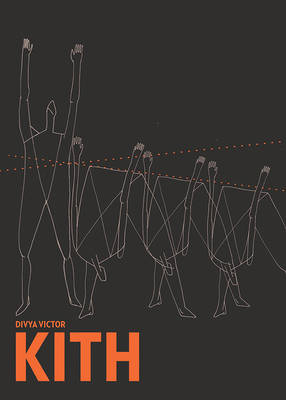
Wil je zeker zijn dat je cadeautjes op tijd onder de kerstboom liggen? Onze winkels ontvangen jou met open armen. Nu met extra openingsuren op zondag!
- Afhalen na 1 uur in een winkel met voorraad
- Gratis thuislevering in België vanaf € 30
- Ruim aanbod met 7 miljoen producten
Wil je zeker zijn dat je cadeautjes op tijd onder de kerstboom liggen? Onze winkels ontvangen jou met open armen. Nu met extra openingsuren op zondag!
- Afhalen na 1 uur in een winkel met voorraad
- Gratis thuislevering in België vanaf € 30
- Ruim aanbod met 7 miljoen producten
Zoeken
Omschrijving
kith [noun] one's friends, acquaintances, neighbours, or relations. In Kith, award-winning writer Divya Victor engages Indian-American diasporic culture in the twentieth century, via an autobiographical account that explores what 'kith' might mean outside of the national boundaries of those people belonging to the Indian and South East Asian diasporas. Through an engagement with the effects of globalization on identity formation, cultural and linguistic exchange, and demographic difference, Kith explores questions about race and ethnic difference: How do 'brownness' and 'blackness' emerge as traded commodities in the transactions of globalization? What are the symptoms of belonging? How and why does 'kith' diverge from 'kin, ' and what are the affects and politics of this divergence? Historically-placed and well-researched, Kith is an unflinching and simultaneous account of both systemic and interpersonal forms of violence and wounding in the world today. Praise for Kith: "For Divya Victor, history is a wound. And the poet's language is bright like the white bandage on which blood shows more clearly. What we have on display in this book is an imagination that is as wide as the world. Part-anthem, part-instruction manual, part-memoir, part-dictionary, this text offers testimony to other ways of being and remembering, a reflection on forgotten lives. I read most of Kith in airplanes and airports, and found myself paying greater attention to everyone around me. I was grateful for Victor's long sentences that spilled into seemingly every corner of our contemporary reality--these sentences that describe so well our locked destinies and, at the same time, perhaps because of their wit, or vitality, or compassion, deliver us into liberated zones of heightened consciousness." -- Amitava Kumar, author of A Foreigner Carrying in the Crook of His Arm A Tiny Bomb Kith is a luminous work of "Multiple Telling with Multiple Offering," as Theresa Hak Kyung Cha might say, the dead flittering out of her thrifted coats with kith in their mouths. Kith, like neighbor, friend, enemy, or community, is a kind of conceptual limit, "not of blood and yet belonging"; not kin, which it is often confused with, but kindred, kinship, and also knowledge. Yet in Kith, it turns out that kith is also kin and kin is also kith and the neighbor is also friend, enemy, and the other neighbor's neighbor, and "we" are all stuck here at the limits of language grasping for new forms of community and belonging when those words suck too yet refuse to burn. Lodged within this "atlas of mangle" known as now-time is something at the helm of being named--Kith's offering, Kith's knowledge, Kith's open boat, Kith's astounding "shriek frightful." Where were you when it will happen --Rachel Zolf
Specificaties
Betrokkenen
- Auteur(s):
- Uitgeverij:
Inhoud
- Aantal bladzijden:
- 248
- Taal:
- Engels
Eigenschappen
- Productcode (EAN):
- 9781771663229
- Verschijningsdatum:
- 1/11/2017
- Uitvoering:
- Paperback
- Formaat:
- Trade paperback (VS)
- Afmetingen:
- 152 mm x 203 mm
- Gewicht:
- 362 g

Alleen bij Standaard Boekhandel
+ 50 punten op je klantenkaart van Standaard Boekhandel
Beoordelingen
We publiceren alleen reviews die voldoen aan de voorwaarden voor reviews. Bekijk onze voorwaarden voor reviews.











